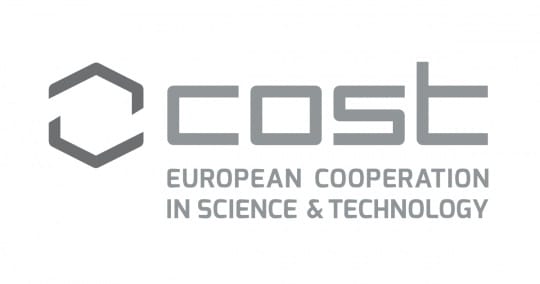In today’s interconnected world, education has transcended borders, opening doors to international experiences and collaborations. Erasmus+ is a flagship European Union program that embodies this spirit by promoting education, training, youth, and sports across Europe and beyond. With a rich history and a wide array of opportunities, Erasmus+ stands as a beacon of global education. In this article, we will delve into the details of the Erasmus+ program, its objectives, key features, and the transformative impact it has on individuals, institutions, and society.
What is Erasmus+?
Erasmus+ is a comprehensive European Union program designed to support education, training, youth, and sports. It builds on the success of its predecessor, the Erasmus program, which was launched in 1987 and initially focused on higher education. Erasmus+ was established in 2014 and expanded its scope to include not only higher education but also vocational education and training, school education, adult education, youth programs, and sport.
Key Objectives
The Erasmus+ program is guided by several overarching objectives, aiming to contribute to the development of a European knowledge-based society. These objectives include:
- Promoting Learning Mobility: Erasmus+ encourages individuals of all ages to undertake learning and training experiences abroad, fostering personal growth, cultural understanding, and skills development.
- Strengthening Cooperation: The program supports international cooperation among educational institutions, organizations, and policymakers, promoting the exchange of best practices and innovative approaches.
- Supporting Policy Reforms: Erasmus+ contributes to modernizing education and training systems by providing funding for projects that focus on innovation, quality assurance, and policy development.
- Fostering Inclusion and Diversity: The program strives to make learning opportunities more accessible to all, with a particular emphasis on social inclusion, equity, and diversity.
- Promoting Active Citizenship: Erasmus+ encourages young people to engage in civic activities, fostering a sense of responsibility and active participation in society.
Key Features
- Mobility Opportunities: One of the standout features of Erasmus+ is its emphasis on mobility. It offers grants to students, teachers, and staff to study, train, or work abroad, allowing them to gain valuable international experience.
- Lifelong Learning: Erasmus+ is not limited to traditional students. It supports lifelong learning by offering opportunities for adults to improve their skills, enhance their employability, and broaden their horizons.
- Project-Based Approach: The program operates through a project-based approach, enabling institutions, organizations, and associations to apply for funding to carry out various projects in the fields of education, training, and youth.
- Strong International Dimension: Erasmus+ is not confined to Europe. It has a strong international dimension, with partnerships and cooperation projects involving countries from around the world.
- Recognition of Learning Outcomes: The program promotes the recognition and validation of learning outcomes acquired during mobility experiences, ensuring that they contribute to individuals’ personal and professional development.
Impact of Erasmus+
The Erasmus+ program has had a profound impact on individuals, institutions, and society as a whole.
- Personal Development: For individuals, Erasmus+ offers the chance to develop a wide range of skills, including language proficiency, cultural awareness, adaptability, and problem-solving. These experiences contribute to personal growth and self-confidence.
- Enhanced Employability: Erasmus+ alumni often find themselves more attractive to employers due to their international experiences, language skills, and intercultural competencies. Many graduates credit Erasmus+ with helping them secure their first job or advancing in their careers.
- Institutional Growth: Educational institutions that participate in Erasmus+ benefit from increased internationalization, improved teaching methods, and the opportunity to collaborate with partners from different countries. These experiences enhance the quality of education and research.
- Cultural Understanding: Erasmus+ fosters cultural understanding and tolerance by bringing together people from diverse backgrounds. This intercultural dialogue helps break down stereotypes and build bridges between nations.
- Economic and Social Impact: The program contributes to economic development by equipping individuals with skills that are in high demand in the global job market. Additionally, it promotes social cohesion and unity within Europe and beyond.
Success Stories
Erasmus+ has produced countless success stories over the years. One such example is Antonio, a Spanish student who participated in the program to study in France. Antonio not only improved his French language skills but also developed a deeper understanding of European culture. After completing his Erasmus+ experience, Antonio secured a job in an international company, where his language skills and cross-cultural competence were highly valued.
Another success story comes from Maria, a Romanian teacher who received Erasmus+ funding to attend a training course in educational innovation in Finland. Maria returned to her school with fresh ideas and innovative teaching methods, revitalizing the learning experience for her students and inspiring her colleagues to embrace change.
Erasmus+ is a remarkable program that has opened doors to countless opportunities for individuals, institutions, and society as a whole. By promoting learning mobility, fostering cooperation, and supporting policy reforms, it has become a driving force for positive change in the European education landscape and beyond. Its impact on personal development, employability, cultural understanding, and economic growth is undeniable. As Erasmus+ continues to evolve and expand its reach, it remains a shining example of the transformative power of international education and cooperation.




